Are you curious about the lives of remarkable individuals? Here are the top person and artist museums in Saxony-Anhalt:
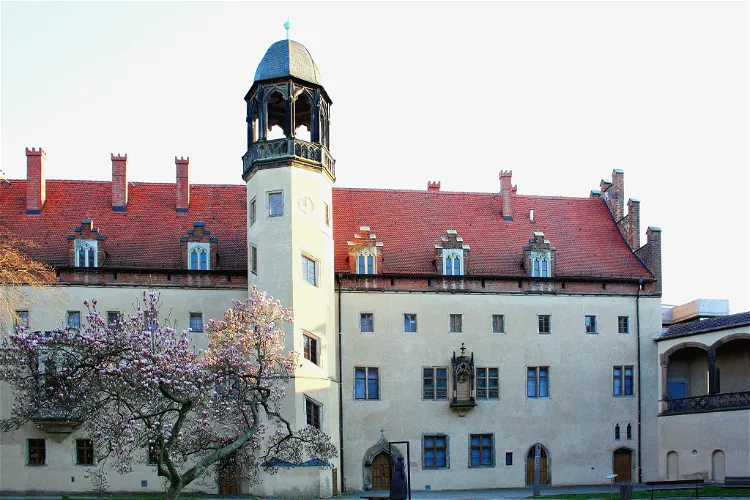
Luther Hall
WittenbergThe Luther House, or Lutherhaus in German, is a significant historical site in Wittenberg, Germany. It served as the home of Martin Luther, the Protestant reformer and founder of Lutheranism, for over 35 years. Today, it stands as a museum, offering visitors a glimpse into the life and work of this influential figure.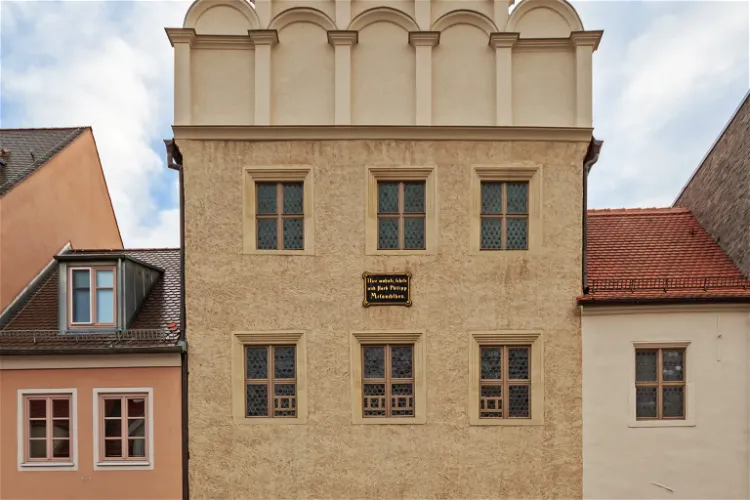
Melanchthon’s House
WittenbergThe Melanchthonhaus in Lutherstadt Wittenberg is a remarkable Renaissance building, known for its late Gothic framed windows and a round-arched tiered gable. Its architectural beauty makes it one of the most attractive townhouses in the city, offering a glimpse into the architectural style of the Renaissance period.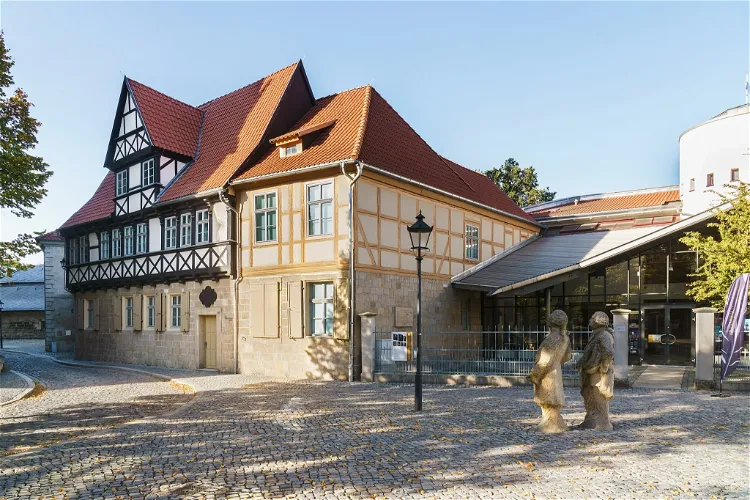
Gleimhaus
HalberstadtThe Gleimhaus in Halberstadt, built in 1862, is recognized as one of the oldest literary museums in Germany. It is situated in the former residence of the renowned poet and collector, Johann Wilhelm Ludwig Gleim. This historical significance of the museum, combined with its rich literary heritage, makes it a fascinating destination for tourists interested in German literature and history.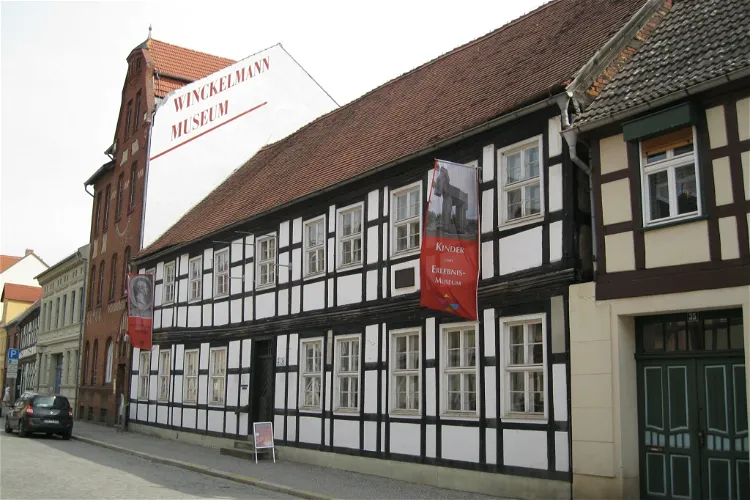
Winckelmann Museum
StendalThe Winckelmann Museum, located in Stendal, is dedicated to the life and work of Johann Joachim Winckelmann, the founder of Classical Archaeology. The museum is situated at the birthplace of Winckelmann and was opened on January 31, 1955. It remains the only museum dedicated to Winckelmann and his contributions to the field of archaeology.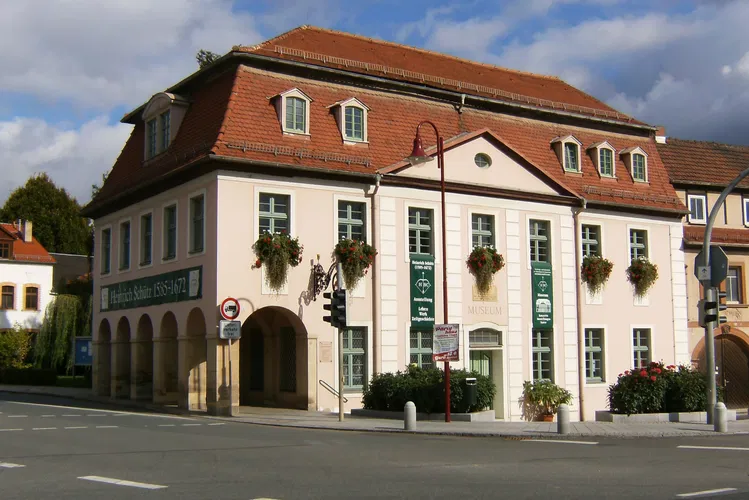
Heinrich Schütz House, Bad Köstritz
DürrenbergThe Heinrich Schütz House, located in Bad Köstritz, Thuringia, Germany, is a cultural site dedicated to the life and work of the renowned composer Heinrich Schütz. This historic building, where Schütz was born, now serves as a museum, providing visitors with a comprehensive understanding of the composer's life, his contributions to music, and his cultural background.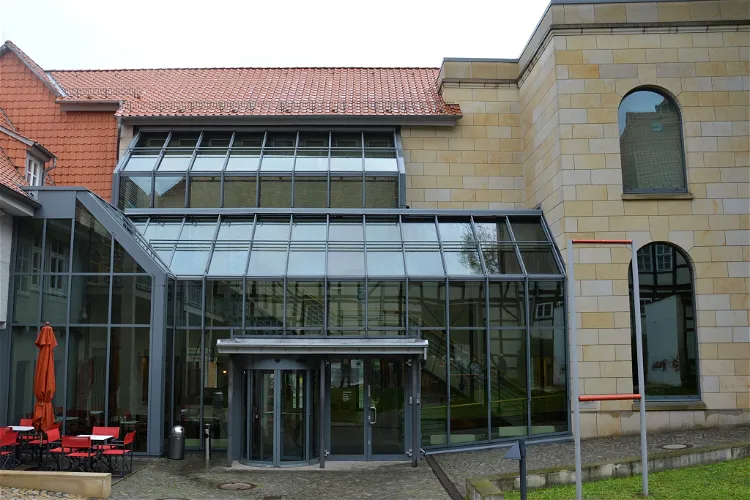
Lyonel-Feininger-Galerie
QuedlinburgThe Lyonel Feininger Museum, previously known as the Lyonel-Feininger-Galerie, is a personal museum located in the historic town of Quedlinburg. Established in 1986, the museum is dedicated to the works of the famous Bauhaus artist, Lyonel Feininger. It is a significant cultural landmark in the region and offers a unique insight into the life and works of Feininger.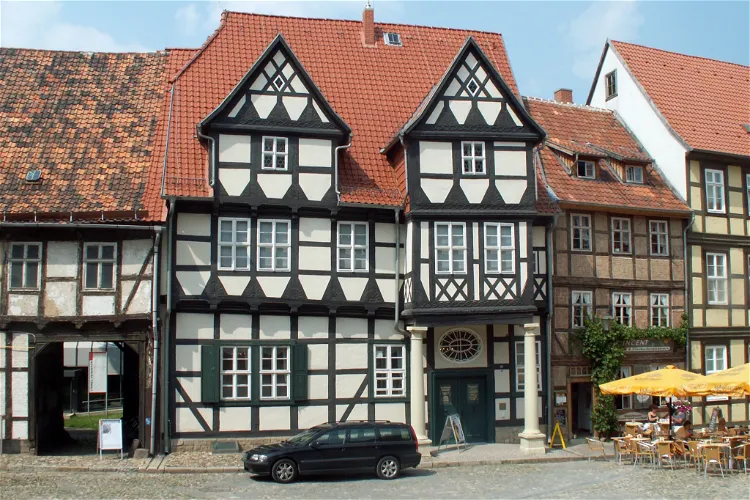
Klopstockhaus
QuedlinburgThe Klopstockhaus in Quedlinburg is a significant site as it is the birthplace of Friedrich Gottlieb Klopstock, a renowned figure in classical German literature. This historical connection adds a layer of cultural significance to the location, making it an interesting destination for those interested in literature and history.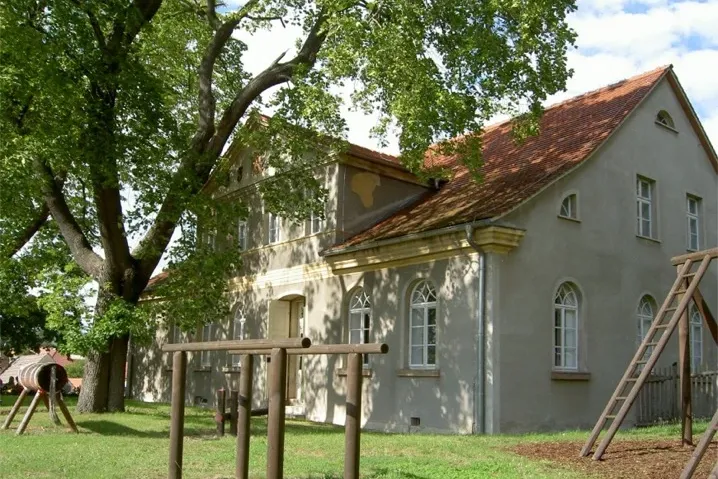
Friedrich Ludwig Jahn Museum
Freyburg (Unstrut)The Friedrich-Ludwig-Jahn-Museum is situated in a house that was constructed by Friedrich Ludwig Jahn himself in the years 1838/39. The museum is located in Freyburg (Unstrut), near the Unstrutwehr at the eastern outskirts of the city. This location offers visitors a chance to explore the historical context of Jahn's life and work.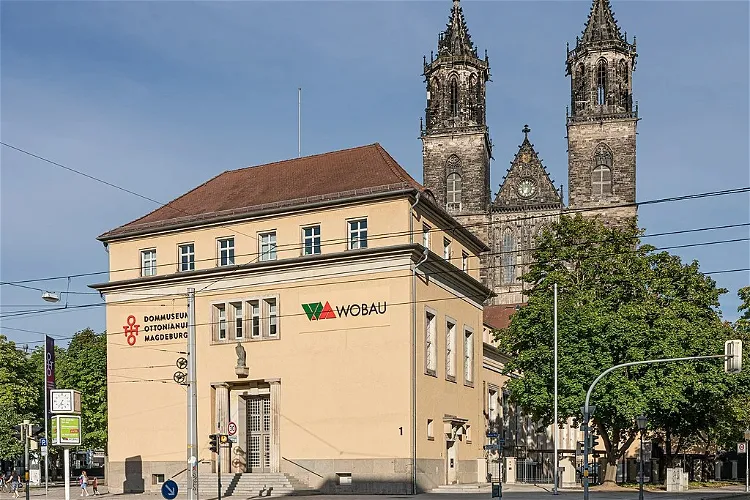
Dommuseum Ottonianum
MagdeburgThe Dommuseum Ottonianum Magdeburg, also known as DOMA, is a museum located in the city of Magdeburg. It was officially opened to the public in November 2018. The museum is a significant cultural and historical site that offers visitors a chance to delve into the rich history of the region.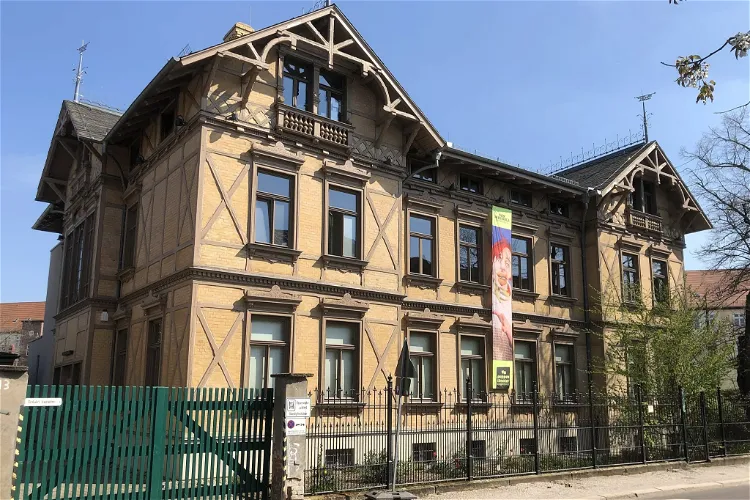
villa p. - Figurenspielsammlung Mitteldeutschland
MagdeburgThe villa p. is a significant historical site located in the Buckau district of Magdeburg. This timber-framed villa is a protected monument and is home to the Figurenspielsammlung of the Magdeburg Puppet Theatre. This makes it a unique destination for tourists interested in history, architecture, and puppetry.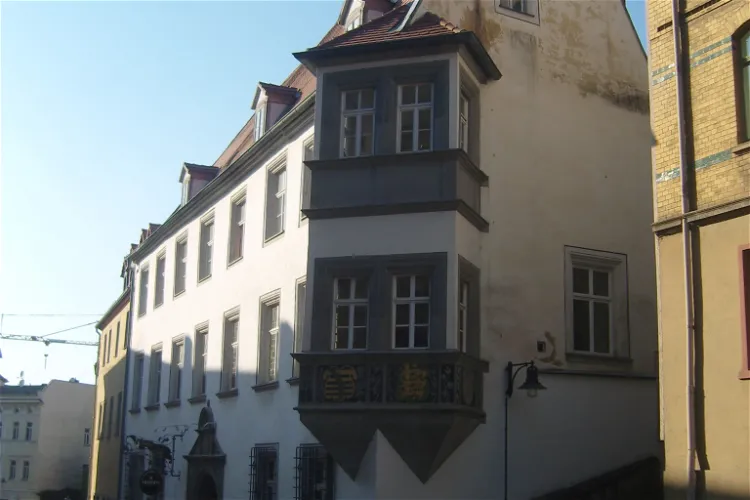
Geleitshaus
WeißenfelsThe Geleitshaus, located in the Große Burgstraße of Weißenfels, is a historical building that now houses the Gustav-Adolf-Museum and an Irish Pub. This former escort office is a significant part of the city's history and offers visitors a chance to explore the past while enjoying modern amenities.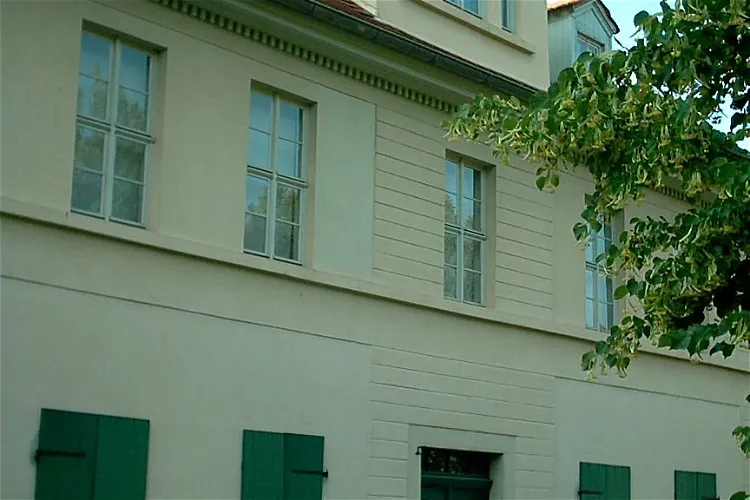
Nietzsche-Haus, Naumburg
Naumburg (Saale)The Nietzsche-Haus in Naumburg (Saale) is a museum dedicated to the life and work of the philosopher Friedrich Nietzsche. It provides an in-depth look into Nietzsche's life, his philosophies, and his influence on the world. The museum is located in the house where Nietzsche's mother, Franziska Nietzsche, moved with her two children, Friedrich and Elisabeth, in the summer of 1858.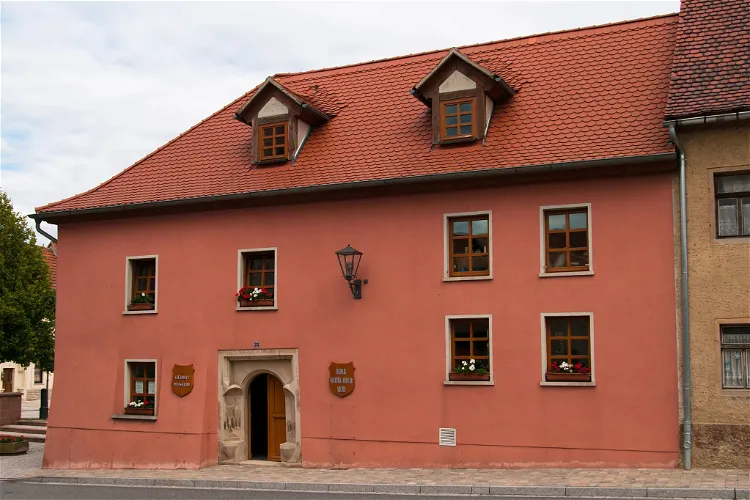
Heimatmuseum Nebra
Nebra (Unstrut)The Heimatmuseum Nebra is a local museum situated in the city of Nebra in Saxony-Anhalt. The museum is located in the former Fulsche-Haus, which was a shoemaker's house. This house was gifted to the city of Nebra in the late 1990s, and the city supported the renovation and establishment of a museum within it.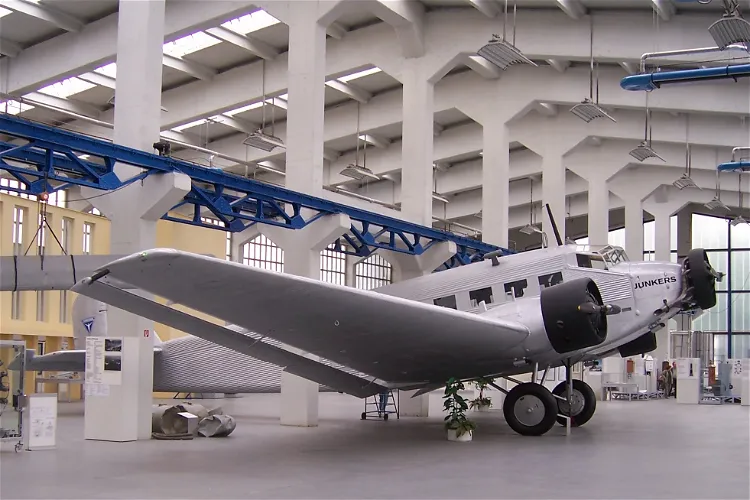
Technikmuseum Hugo Junkers
DessauThe Hugo-Junkers Museum is situated in the Klein-Kühnau district of Dessau-Roßlau. This location is easily accessible and offers a unique opportunity to explore the industrial achievements of the aircraft manufacturer Hugo Junkers.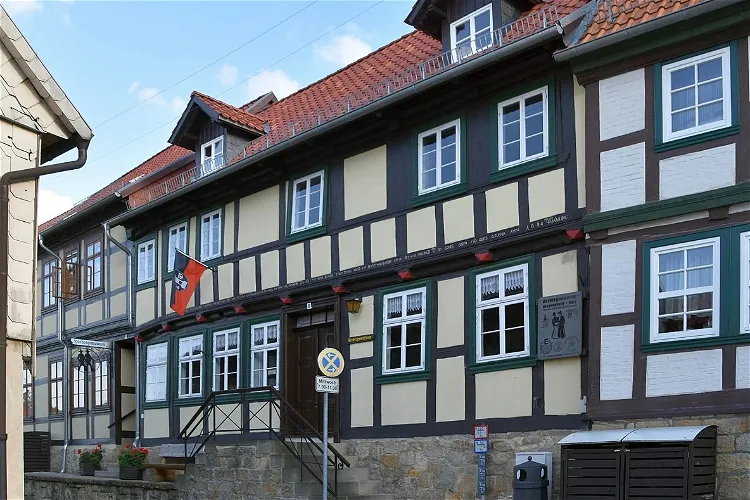
Herbergsmuseum
BlankenburgThe Herbergsmuseum, located at Bergstraße 15 in Blankenburg (Harz), holds a unique position in Germany as the only museum developed from a historical journeymen's hostel. This makes it a distinctive destination for those interested in history and culture.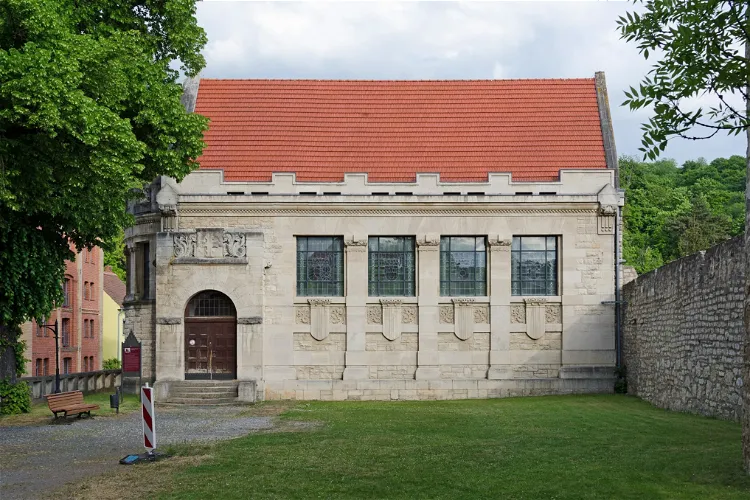
Friedrich-Ludwig-Jahn Ehrenhalle
Freyburg (Unstrut)The Friedrich-Ludwig-Jahn-Ehrenhalle, located in Freyburg (Unstrut), was originally established as a museum dedicated to Friedrich Ludwig Jahn. Today, it serves as a venue for festive events and scientific conferences, and also hosts the member meetings of the Friedrich-Ludwig-Jahn-Gesellschaft e.V. The building is protected as a historical monument, adding to its cultural and historical significance.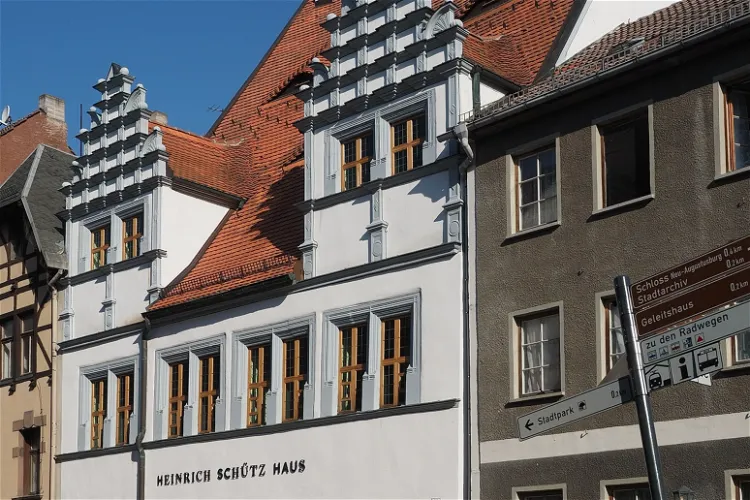
Heinrich Schütz House, Weißenfels
WeißenfelsThe Heinrich-Schütz-Haus stands out as the only largely original residential house of the musician that is open to the public today. This unique attribute provides visitors with an authentic glimpse into the living conditions and environment of the composer during his time in Weißenfels.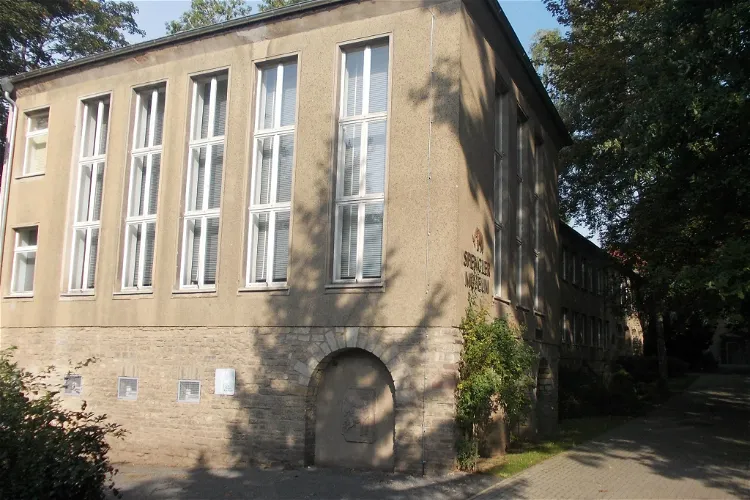
Spengler-Museum
SangerhausenThe Spengler Museum is home to a variety of exhibits that were collected by local researcher Gustav Adolf Spengler during the first half of the 20th century. These exhibits provide a glimpse into the rich history and culture of the region.
Bauhaus Dessau
Dessau-RoßlauThe Bauhaus building in Dessau-Roßlau, Germany, is a significant piece of modern architecture. It was originally designed to house the Bauhaus school of art, design, and architecture. The building was constructed between 1925 and 1926, following the plans of the architect and director of the Bauhaus, Walter Gropius. This building is a major work of the functionalist movement and has been listed as a UNESCO World Heritage Site since 1996.- 20
Cycling Museum Course de la Paix
KleinmühlingenThe Cycling Museum Course de la Paix in Kleinmühlingen is a tribute to the International Peace Race, a significant event in the history of cycling that was last held in 2006. The museum offers a unique opportunity to delve into the history of this race and understand its importance in the world of cycling.